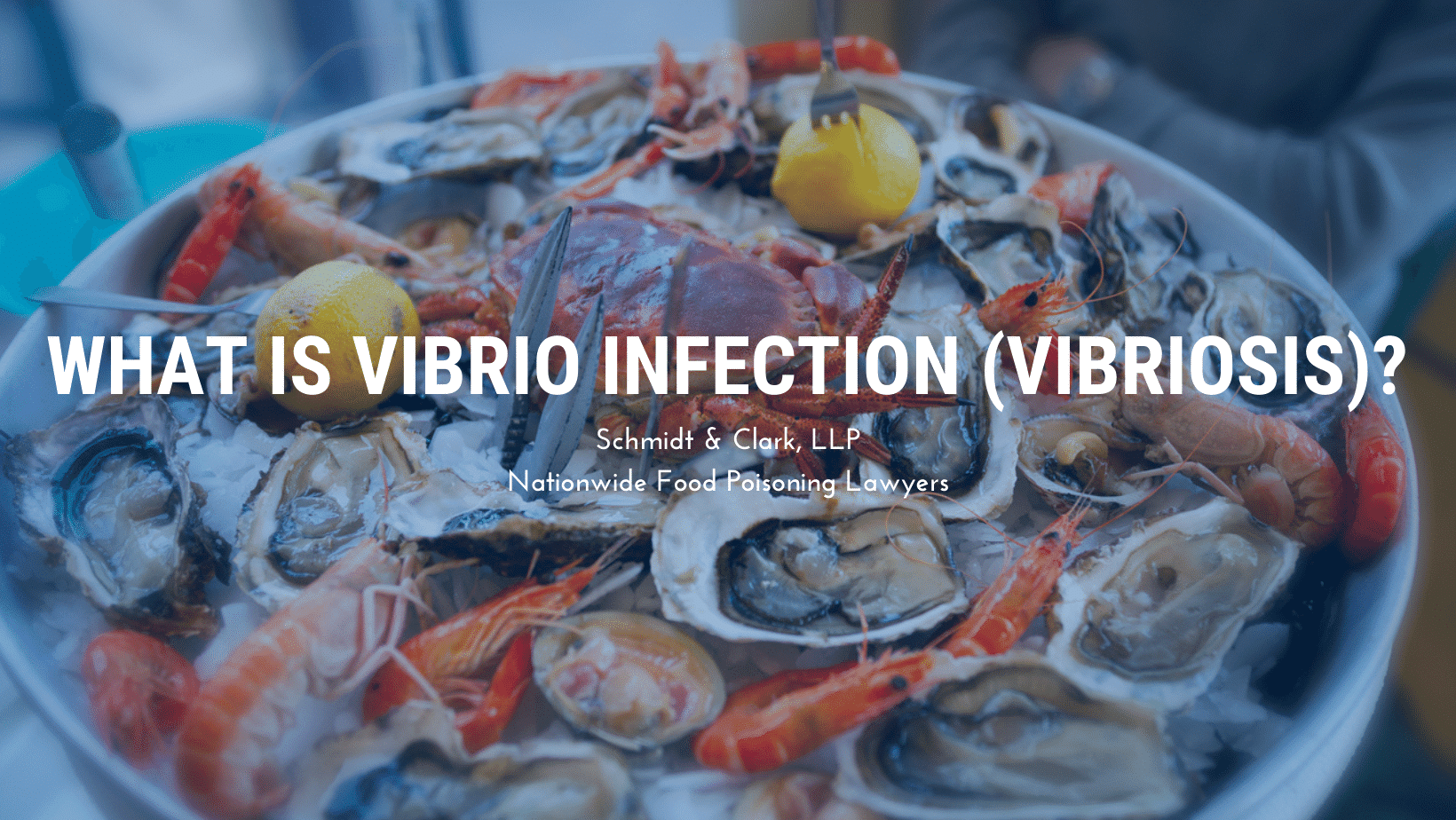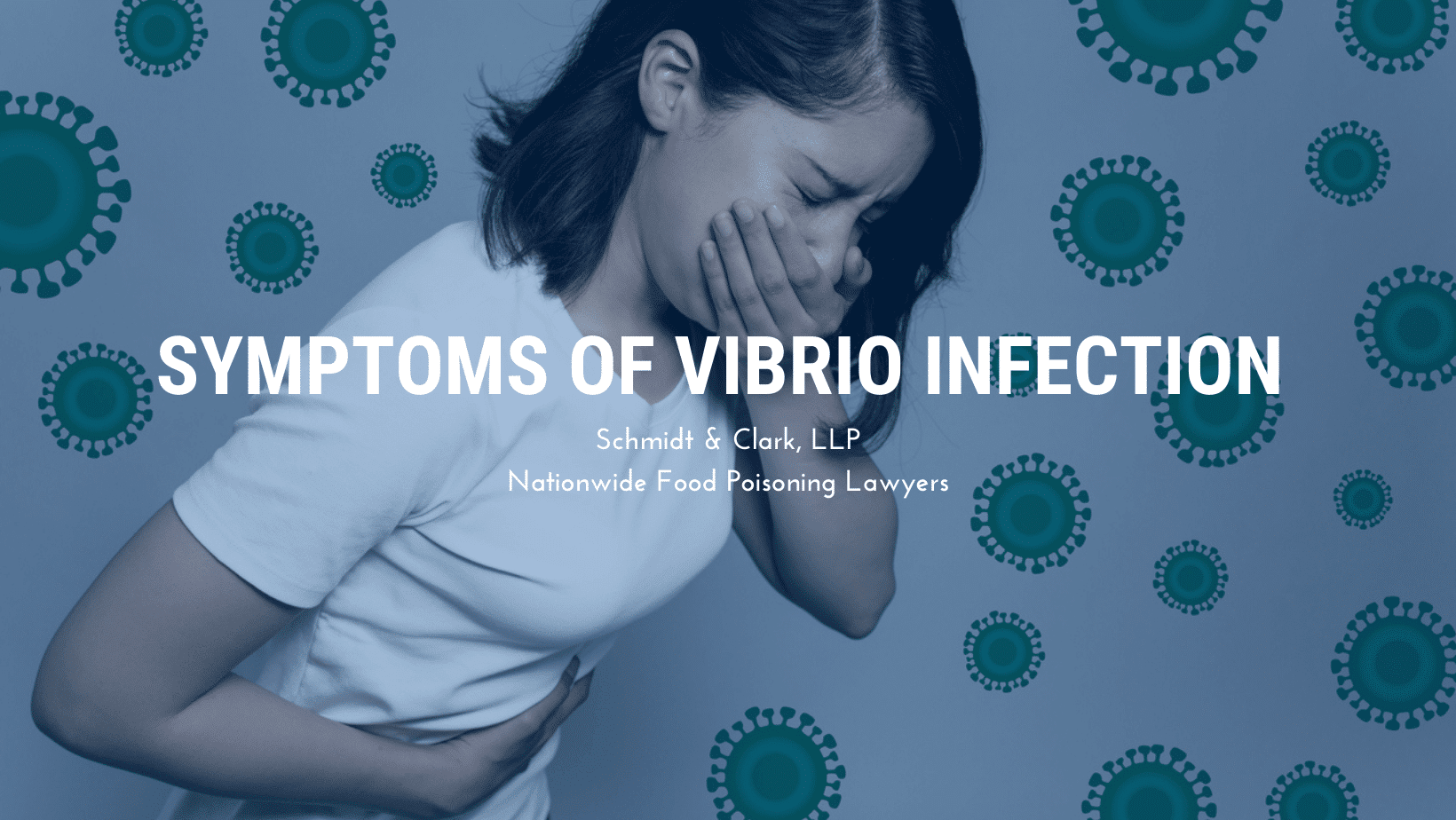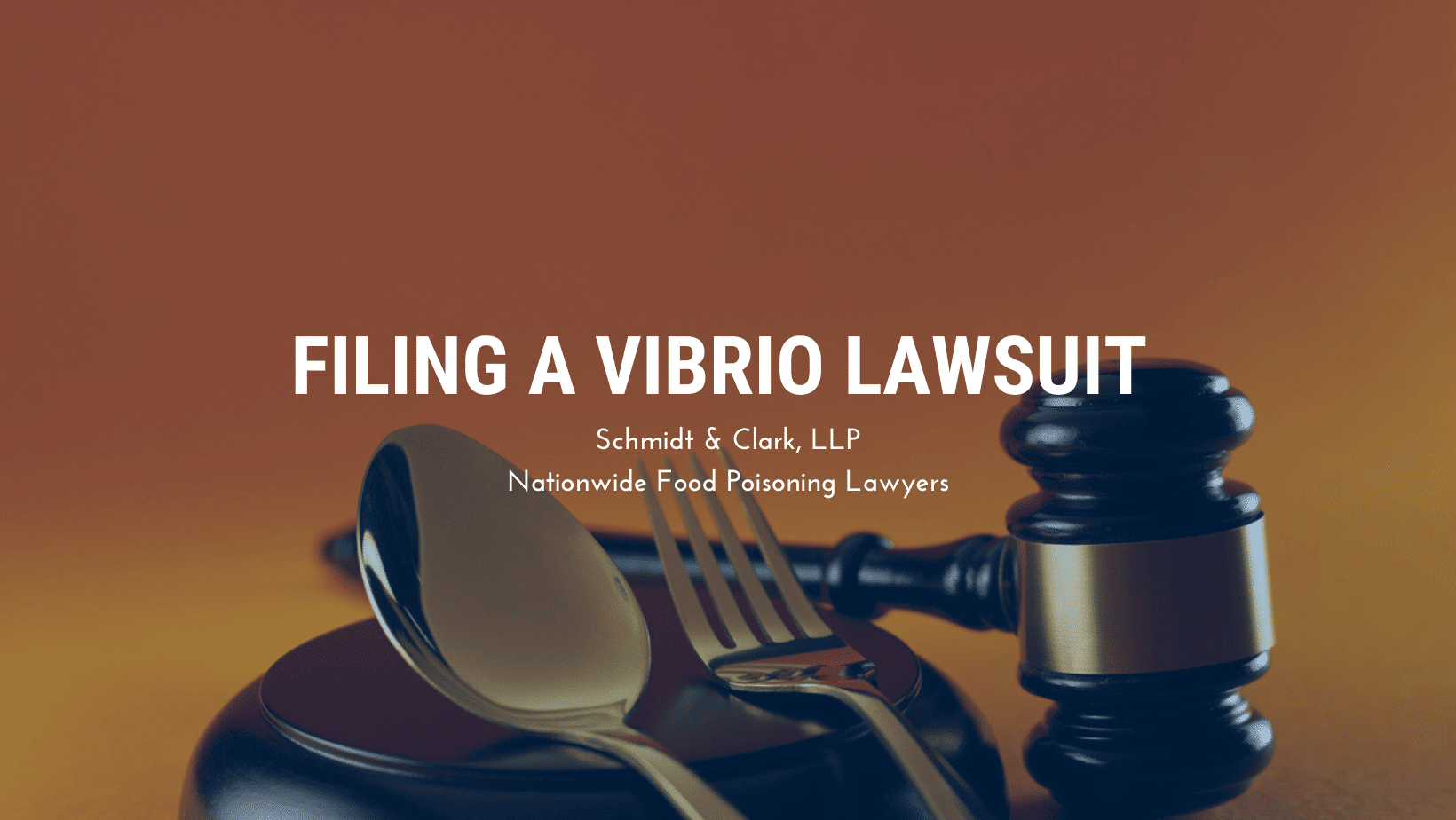Please click the contact form below for free advice or call a food poisoning attorney toll-free 24 hrs/day by dialing (866) 588-0600.
Table Of Contents
- What’s the Problem?
- Latest Vibrio Food Poisoning Updates
- FDA Reports and Statistics
- Vibrio Food Poisoning Injuries & Side Effects
- Do You Qualify for a Vibrio Food Poisoning Lawsuit?
- Vibrio Food Poisoning FDA Advisories
- Statute of Limitations for Vibrio Food Poisoning Lawsuits
- FAQs
- 1. How is Vibrio bacteria infection diagnosed?
- 2. What types of seafood are most commonly associated with Vibrio contamination?
- 3. How can I prevent a Vibrio infection?
- 4. What is the typical timeline for a Vibrio food poisoning lawsuit?
- 5. What compensation can I expect from a Vibrio lawsuit?
- 6. How is Vibrio food poisoning treated?
- 7. Who is most at risk for severe Vibrio complications?
- 8. Are there any FDA warnings regarding Vibrio?
- 9. How common are deaths from Vibrio infections?
- 10. Can I file a lawsuit if I got sick from swimming in contaminated water?
- Get a Free Vibrio Food Poisoning Lawsuit Evaluation With Our Lawyers
What’s the Problem?
Vibrio food poisoning legal claims focus on severe illnesses caused by consumption of contaminated seafood or exposure to bacteria-laden coastal waters.
These legal actions typically target food manufacturers, restaurants, and seafood suppliers who failed to properly handle, prepare, or warn consumers about potential Vibrio contamination risks.
The FDA regularly issues warnings about the risks of Vibrio infections, particularly related to consuming raw or undercooked seafood, emphasizing the serious public health concern these bacteria represent.
Latest Vibrio Food Poisoning Updates
Vibrio food poisoning litigation continues to evolve as cases are filed across the United States [1].
Recent developments in food safety litigation have established precedents for holding food suppliers liable for bacterial contamination, strengthening the legal basis for Vibrio lawsuits [2].
Furthermore, increased awareness about the dangers of raw seafood consumption has led to more stringent regulatory requirements for restaurants and seafood suppliers regarding warnings and food handling procedures.
FDA Reports and Statistics
The FDA and CDC provide comprehensive data on Vibrio infections and their impact:
- Approximately 52,000 Americans are affected by Vibrio infections (vibriosis) annually [3].
- Unlike most foodborne illnesses, vibriosis typically occurs as individual cases rather than outbreaks.
- Vibrio vulnificus, the most dangerous strain, has a mortality rate of up to 20%.
- Infections are more common between May and October when coastal water temperatures are warmer.
- About a dozen Vibrio species can cause human illness, with V. parahaemolyticus, V. vulnificus, and V. alginolyticus being the most common in the U.S.
The FDA issues regular advisories about Vibrio risks, particularly related to consumption of raw or undercooked seafood, and provides guidelines for proper seafood handling and preparation to reduce infection risk.
Vibrio Food Poisoning Injuries & Side Effects
Vibrio infections can cause a range of symptoms and complications that vary significantly in severity, with some requiring immediate medical attention and potentially becoming life-threatening.
- Necrotizing Fasciitis (Flesh-Eating Infection): Rapid tissue destruction around wounds requiring surgery or amputation, typically appearing 12-72 hours after exposure.
- Septicemia (Bloodstream Infection): Fever, chills, extremely low blood pressure, and blistering skin lesions, appearing within 1-4 days of exposure and potentially fatal.
- Severe Wound Infections: Redness, swelling, fluid-filled blisters, and skin discoloration occurring 12-72 hours after exposure, potentially leading to systemic infection.
- Gastrointestinal Distress: Watery diarrhea (sometimes bloody), abdominal cramping, nausea, and vomiting appearing within 24 hours and lasting about 3 days.
- Myonecrosis: Death of muscle tissue requiring extensive surgical debridement.
- Gangrene: Tissue death that frequently results in amputation.
Most patients experience symptoms within 24 hours of exposure, but those with compromised immune systems or chronic liver disease face heightened risks of developing life-threatening complications.
How is Vibrio Diagnosed?
A doctor may suspect vibriosis if a patient has watery diarrhea and has recently eaten raw or undercooked shellfish, especially raw oysters, or when a wound infection occurs after exposure to seawater.
Infection is diagnosed when Vibrio bacteria are found in the stool, wound, or bloodstream of a patient with vibriosis symptoms.
See more: Cholera Poisoning Lawsuit
Vibrio Treatment
Because serious Vibrio personal injury is self-limited in most patients, no specific medical therapy is recommended. Patients who cannot tolerate oral fluid replacement may require intravenous fluid therapy.
Early fasciotomy within 24 hours after developing clinical symptoms can be life-saving in patients with Vibrio infections.
Early debridement of skin lesions is important in successful therapy and is especially indicated to avoid chronic liver disease.
Expeditious and serial surgical evaluation and intervention are required because patients may deteriorate rapidly, especially in patients with abdominal pain or a compromised immune system. Reconstructive surgery, such as a skin graft, is indicated in the recovery phase.
Do You Qualify for a Vibrio Food Poisoning Lawsuit?
You may qualify for a Vibrio food poisoning lawsuit if:
- You consumed raw or undercooked seafood, particularly oysters, that was contaminated with Vibrio bacteria.
- You developed a wound infection after exposure to coastal waters or brackish water containing Vibrio bacteria.
- You experienced Vibrio-related symptoms requiring medical attention, such as severe diarrhea, wound infection, or more serious complications.
- You were diagnosed with a Vibrio infection through laboratory testing of stool, wound, or blood samples.
- You sought medical treatment within a reasonable timeframe after symptom onset.
- You can establish a clear connection between your illness and a specific food source or water exposure.
Individuals with compromised immune systems, chronic liver disease, or cancer who suffered severe complications may have particularly strong cases due to their increased vulnerability to serious Vibrio infections.
Evidence Required for a Vibrio Food Poisoning Lawsuit
To build a strong case for your Vibrio food poisoning lawsuit, you should gather the following evidence:
- Medical Records: Documentation of your diagnosis, including laboratory test results confirming Vibrio infection.
- Treatment Documentation: Records of all treatments received, including hospitalizations, surgeries, medications, and follow-up care.
- Food Purchase Evidence: Receipts, credit card statements, or other proof of purchasing the contaminated food.
- Water Exposure Documentation: For wound infections, evidence of exposure to specific coastal or brackish waters.
- Witness Statements: Testimonies from dining companions or others who can verify your food consumption or water exposure.
- Expert Testimony: Medical opinions linking your specific infection to the contaminated source.
Preserving this evidence promptly after becoming ill is crucial for establishing a clear connection between the contaminated food or water and your Vibrio infection.
Damages You Can Recover
If your Vibrio food poisoning lawsuit is successful, you may be eligible to recover various types of damages:
- Medical Expenses: Reimbursement for hospital bills, doctor visits, medications, surgeries, and ongoing treatments.
- Lost Wages: Compensation for work missed due to illness or recovery time.
- Long-term Care Needs: Coverage for ongoing medical treatment if complications arise, such as reconstructive surgery following necrotizing fasciitis.
- Pain and Suffering: Non-economic damages for physical pain, emotional distress, and reduced quality of life.
- Disability-Related Costs: Expenses for accommodations needed due to permanent disabilities resulting from severe infections.
- Punitive Damages: Additional compensation in cases where a defendant’s conduct was particularly negligent or reckless.
Settlement ranges vary significantly based on case severity:
- Mild cases requiring brief medical care: $1,000 – $10,000 in compensation
- Moderate cases requiring hospitalization: $10,000 – $100,000 in compensation
- Severe cases with long-term complications: $100,000 – $1 million or more, depending on injury severity and life impact
Vibrio Food Poisoning FDA Advisories
While there haven’t been specific product recalls related to Vibrio bacteria, the FDA has issued numerous advisories about Vibrio risks:
- Ongoing warnings about consuming raw or undercooked seafood, particularly oysters harvested from warm coastal waters.
- Seasonal advisories during summer months (May-October) when Vibrio concentration in coastal waters increases.
- Geographic alerts for areas with particularly high Vibrio concentrations.
- Guidelines for proper seafood handling and preparation to minimize contamination risk.
- Recommendations for immunocompromised individuals to avoid raw seafood entirely.
These advisories serve to educate consumers about Vibrio risks and provide guidance to the seafood industry regarding best practices for minimizing contamination and protecting public health.
Statute of Limitations for Vibrio Food Poisoning Lawsuits
The statute of limitations for filing a Vibrio food poisoning lawsuit varies by state, typically ranging from 1-3 years from the date of illness or discovery of injury.
Some key considerations:
- Discovery Rule: In many states, the statute of limitations begins when you discovered or reasonably should have discovered that your illness was caused by Vibrio contamination.
- Diagnosis Timing: Laboratory confirmation of Vibrio infection may extend the filing window in some jurisdictions.
- Minor Considerations: For children affected by Vibrio poisoning, the statute of limitations may be tolled until they reach the age of majority.
- State Variations: Timeframes vary significantly by state, from as little as 1 year to as many as 6 years.
Given these variations and complexities, consulting with a food poisoning attorney promptly after illness is crucial to ensure compliance with applicable time limits for filing your claim.
FAQs
Get a Free Vibrio Food Poisoning Lawsuit Evaluation With Our Lawyers
Time is limited to pursue legal action for Vibrio food poisoning. Most states have statutes of limitations ranging from 1-3 years from the date of illness or discovery of injury.
Waiting too long could permanently bar you from seeking the compensation you deserve for your suffering.
The legal timeline for Vibrio food poisoning claims includes several critical steps:
- Seeking medical attention immediately after illness
- Contacting a food poisoning attorney within 1-2 weeks
- Collecting evidence over 1-3 months
- Filing your lawsuit before the statute of limitations expires
At Schmidt & Clark, LLP, we offer:
- Free, confidential consultations to evaluate your case
- No upfront costs or fees for our legal services
- Payment only if we win your case or secure a settlement
- Experienced attorneys specializing in food poisoning litigation
Call the food poisoning lawyers with Schmidt & Clark, LLP by dialing (866) 588-0600 or fill out the contact form below to get your free case review.
References:
- https://www.foodpoisoningnews.com/when-does-it-become-prudent-to-file-a-vibrio-lawsuit-understanding-vibrio-and-its-common-carriers/
- https://www.latimes.com/archives/la-xpm-1993-04-01-fo-17458-story.html
- https://www.cdc.gov/vibrio/about/index.html#:~:text=How%20common%20is%20vibriosis%3F,result%20of%20eating%20contaminated%20food.

 Published by
Published by 

